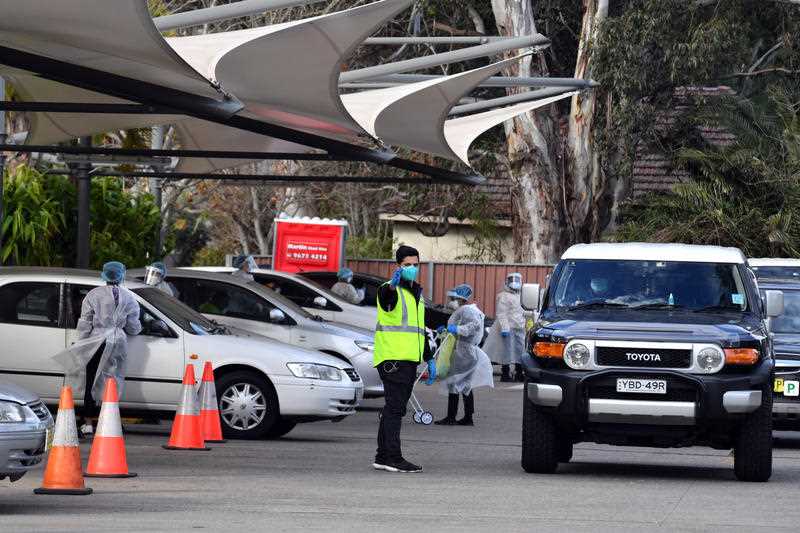NSW has reported 239 new locally acquired COVID-19 cases as the virus continues to spread in workplaces and households.
Premier Gladys Berejiklian says “pleasingly” the cases were not outside the main eight Sydney local government areas of concern.
“We are again seeing the virus circulating in workplaces and in homes,” she said.
Ms Berejiklian said in the previous 24 hours more than 82,000 people in NSW had been vaccinated.
“At that rate we are vaccinating 500,000 of people per week,” she said.
Of the 239 locally acquired cases recorded in the 24 hours to 8pm on Saturday, 115 are linked to a known case or cluster – 92 are household contacts and 23 are close contacts. The source of infection for 124 cases is under investigation.
There are currently 222 COVID-19 cases admitted to hospital in NSW. Of these, 54 people are in intensive care, 25 of whom require ventilation.
There were 87,712 COVID-19 tests reported to 8pm on Saturday night.
Earlier on Sunday NSW Health Minister Brad Hazzard said authorities would keep harsher lockdown measures in specific local government areas despite calls to expand certain rules for all of Sydney.
The Australian Medical Association President Dr Omar Khorshid has called for travel limits within a five kilometre radius from home and outdoor mask wearing rules to be extended beyond eight local government areas.
“We’re trying to strike a balance and I think the balance is appropriate,” Mr Hazzard told ABC’s Insiders program on Sunday.
He said when Sydney locked down the northern beaches during an outbreak last year and the eastern suburbs during this outbreak there was a “high level of compliance”. The lockdown in Sydney’s southwest had been more “challenging”, he said.
NSW recorded its 14th death in this current outbreak on Saturday, a man in his 60s who died at home in southwest Sydney.
When asked about his previous comments that Sydney families were turning up to hospitals with a COVID-19 infected relative who is “not alive but dead” the minister said he would not go into the family’s “personal circumstances”.
“All I’ll say is that there was broad infection in the family and there was no effort to get to health authorities, as I understand it, until it was too late,” Mr Hazzard said.
Mr Hazzard said there was a reluctance for large “refugee family groups” where there are few income earners to come forward to health authorities.
Greater Sydney and surrounding regions are in lockdown until at least August 28, as health authorities battle to contain a outbreak of the virulent Delta strain.
Saturday marked the return to work for the construction sector after a fortnight-long enforced break, with work allowed to resume on non-occupied sites provided COVID-safe plans are in force.
But the sector cannot call on 68,000 workers – or 42 per cent of the workforce – from eight council areas worst-hit by the city’s coronavirus outbreak.
The state’s workplace safety regulator says construction sites should expect a visit to ensure they’re complying with public health orders.
Meanwhile a threatened anti-lockdown protest in central Sydney failed to eventuate on Saturday.
Police set up an exclusion zone around the city between 9am and 3pm after warning taxi and rideshare companies they would face fines of up to half a million dollars for transporting passengers into the CBD.
AAP



